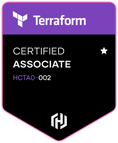What is Redux?
Redux is a popular open-source state management library for JavaScript applications. It is often used with React but can be used with other frameworks or libraries as well. Redux helps manage the state of an application in a predictable way by providing a centralized store that holds the application's state and a set of rules for updating that state.
The basic idea behind Redux is to keep the state of an application in a single location and update that state through actions. An action is a plain JavaScript object that describes a change that should be made to the state. Reducers are functions that take the current state and an action as input and return a new state that reflects the changes described by the action.
One of the benefits of using Redux is that it provides a clear separation of concerns between different parts of an application. Components can dispatch actions to update the state and subscribe to changes in the state to update their rendering. Redux also provides a number of developer tools to help with debugging and testing.
How Redux Works
Redux is based on three main principles: the store, actions, and reducers. These principles work together to provide a predictable and scalable way to manage the state of your application.
Key Concepts in Redux
- Store: The store is an object that holds the entire state of your application. It is the single source of truth for your application's data and provides a way to read, write, and subscribe to changes in that data.
- Action: An action is a plain JavaScript object that describes a change that should be made to the state. It has a
typeproperty that describes the type of change being made and can have additional properties to specify the data being updated. - Reducer: A reducer is a pure function that takes the current state and an action as inputs and returns a new state reflecting the changes described by the action. Reducers are designed to be pure, meaning they always return the same output given the same input, without side effects.
- Dispatch: The
dispatchfunction sends an action to the store. When an action is dispatched, it is passed to all the reducers in the application. Each reducer checks the action type and decides whether to update the state. - Subscribe: The
subscribefunction registers a callback function called whenever the state in the store changes. Subscribed components can update their rendering based on the new state.
By providing a centralized store and a set of rules for updating it, Redux simplifies state management, making it more predictable and easier to maintain and debug complex applications.
Redux with Next.js
Next.js is a popular framework for building server-side rendered React applications. When using Redux with Next.js, consider these key concepts:
- Store: The Redux store holds the entire state of your application and is created using the
createStorefunction from Redux. In Next.js, the store should be initialized at the application root and passed to all child components. - Provider: The
Providercomponent fromreact-reduxprovides the Redux store to your application. Wrap it around the root component. - Actions and Reducers: Actions and reducers function the same way as in a typical React application, enabling state updates via dispatched actions.
- Server-side Rendering: Next.js supports server-side rendering, enhancing performance and SEO. To use Redux with server-side rendering, ensure the initial state of the store is synchronized between the server and client, often using
getInitialPropsorgetServerSideProps. - Async Actions: For handling side effects like network requests, use middleware libraries such as
redux-thunkorredux-saga.
Redux with Next.js enables scalable state management and integrates well with server-side rendering, enhancing both performance and SEO.
Redux vs Other State Management Libraries
- Vuex: A state management library for Vue.js, similar to Redux but tailored for Vue applications with features like mutations and actions.
- NgRx: A Redux-inspired state management library for Angular with additional Angular-specific features.
- React's Built-in State: Best for simple state management but unsuitable for complex, shared state scenarios.
- React Context: Suitable for lightweight, shared state but lacks centralized management and predictability.
- UseReducer Hook: A simpler alternative to Redux for managing state in React but limited in scalability.
- MobX: A reactive state management library with concise code but potentially less predictable behavior than Redux.
When to Use Redux Over Alternatives
- Centralized state: When your application has a lot of shared, complex state.
- Predictable updates: Redux provides clear, predictable rules for state updates.
- Large applications: Redux scales well with application complexity.
- Debugging and testing: Redux's developer tools simplify debugging and testing.
- Compatibility: Works well across various frameworks and libraries, not just React.
Our React.js Development Process with Redux
At Space-Rocket, we ensure that every project meets our high standards for quality, performance, and usability, especially those using Redux for state management. Our process includes:
- Consultation and requirements gathering: We work closely with you to understand your business needs and define the requirements for your application with Redux.
- Planning and architecture: We design a scalable and performant architecture tailored to your needs.
- Redux store development: We build a robust Redux store with actions and reducers for predictable state management.
- React.js component and page development: We develop high-quality components and pages optimized for performance and maintainability.
- Continuous Integration (CI): Regular integration of code to ensure a deployable state.
- Continuous Deployment (CD): Automating the deployment process for efficiency and reliability.
- Ongoing maintenance and support: Ensuring your application continues to meet your needs.
Our Promise to Clients
We are committed to delivering top-notch React.js development services with Redux state management. With our expertise, we guarantee that every project will meet the highest standards.
Contact Space-Rocket today to discuss your React.js development needs with Redux. Schedule a consultation or get a free quote!


